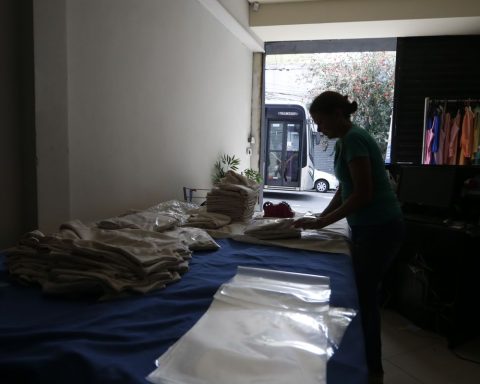The Ministry of Health reported that it is monitoring the rain situation in the south of the country, “with special attention” to Santa Catarina and Paraná. In a note, the ministry highlighted that, to date, no basic health unit (UBS), public pharmacy or any other health service has been affected in both states.
According to the statement, in July, the ministry supported Santa Catarina in creating an Action Plan for Preparedness, Surveillance and Response to Public Health Emergencies. “The objective was to identify strong and critical points in different scenarios and guide the formulation of plans in all federative units”.
Care
In the note, the department recalls that situations arising from a large volume of rain, including floods, can pose health risks. Contact with contaminated water and mud, for example, can result in serious illnesses.
The guidance is that the population in affected areas should be aware of symptoms such as diarrhea, fever, headache, nausea or vomiting, abdominal cramps, abdominal pain, blood or mucus in the stool. “If you have any of these symptoms and three or more episodes of diarrhea within 24 hours, the Ministry of Health recommends seeing a doctor.”
The folder also advises that care must be taken when sanitizing, preparing and storing food, as improperly handled and stored food can transmit diseases such as leptospirosis, tetanus, hepatitis A, cholera, typhoid fever and hepatitis A.
“Do not consume any food that has come into contact with flood water or mud or food stored in packaging that is not waterproof or that is not sealed, such as jars, bottles, glass cases, long-life boxes, bagged , open or closed.”
Regarding the water to be consumed, the following precautions must be adopted:
– filter or strain the water with a domestic filter, paper strainer or clean cloth;
– then add two drops of 2.5% sodium hypochlorite for each liter of water;
– mix well and wait 30 minutes before consuming, and water treated with 2.5% sodium hypochlorite must be consumed within 24 hours.
“In the absence of hypochlorite, filter and boil the water to make it safe for consumption. Filter or strain the water with a household filter, paper strainer or clean cloth. After filtering or straining, boil for five minutes after the start of boiling. Wait for the water to cool and shake the water after boiling before drinking.”

















